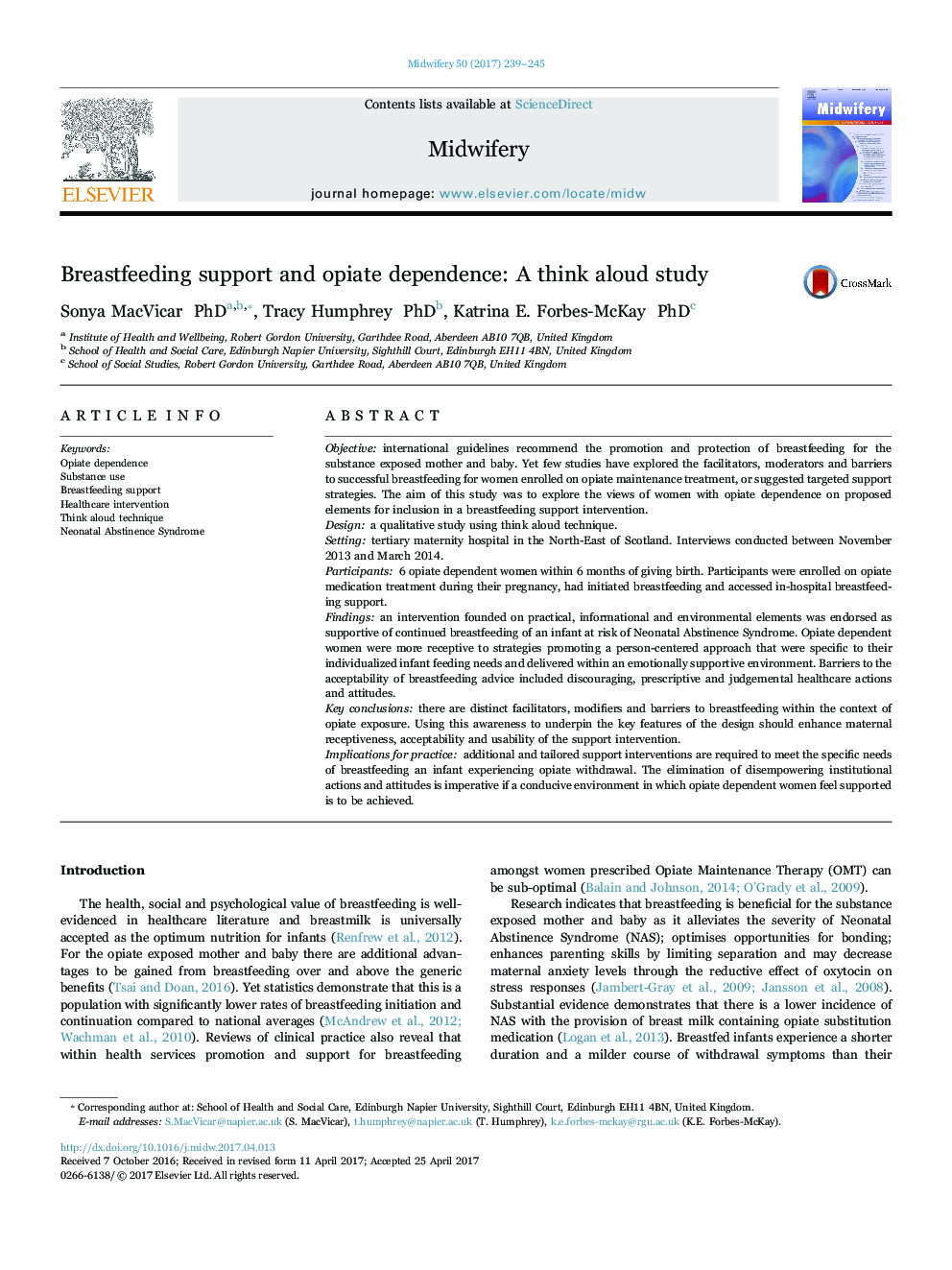| Article ID | Journal | Published Year | Pages | File Type |
|---|---|---|---|---|
| 5122375 | Midwifery | 2017 | 7 Pages |
Objectiveinternational guidelines recommend the promotion and protection of breastfeeding for the substance exposed mother and baby. Yet few studies have explored the facilitators, moderators and barriers to successful breastfeeding for women enrolled on opiate maintenance treatment, or suggested targeted support strategies. The aim of this study was to explore the views of women with opiate dependence on proposed elements for inclusion in a breastfeeding support intervention.Designa qualitative study using think aloud technique.Settingtertiary maternity hospital in the North-East of Scotland. Interviews conducted between November 2013 and March 2014.Participants6 opiate dependent women within 6 months of giving birth. Participants were enrolled on opiate medication treatment during their pregnancy, had initiated breastfeeding and accessed in-hospital breastfeeding support.Findingsan intervention founded on practical, informational and environmental elements was endorsed as supportive of continued breastfeeding of an infant at risk of Neonatal Abstinence Syndrome. Opiate dependent women were more receptive to strategies promoting a person-centered approach that were specific to their individualized infant feeding needs and delivered within an emotionally supportive environment. Barriers to the acceptability of breastfeeding advice included discouraging, prescriptive and judgemental healthcare actions and attitudes.Key conclusionsthere are distinct facilitators, modifiers and barriers to breastfeeding within the context of opiate exposure. Using this awareness to underpin the key features of the design should enhance maternal receptiveness, acceptability and usability of the support intervention.Implications for practiceadditional and tailored support interventions are required to meet the specific needs of breastfeeding an infant experiencing opiate withdrawal. The elimination of disempowering institutional actions and attitudes is imperative if a conducive environment in which opiate dependent women feel supported is to be achieved.
